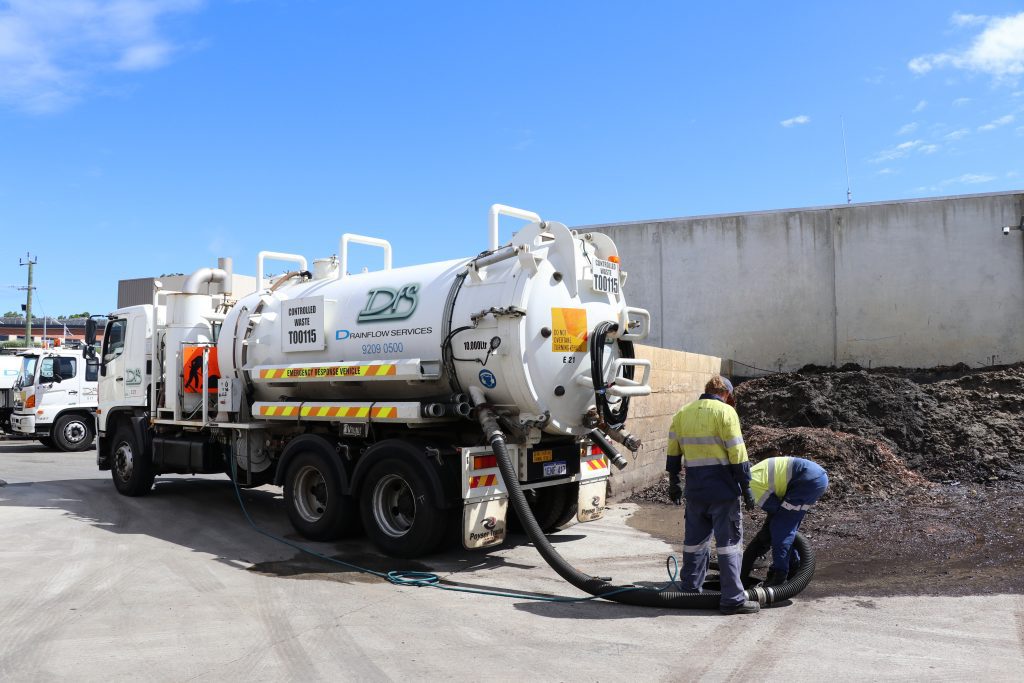The Main Principles Of Reclaim Waste
The Main Principles Of Reclaim Waste
Blog Article
The Definitive Guide to Reclaim Waste
Table of ContentsThe Single Strategy To Use For Reclaim WasteReclaim Waste - QuestionsAn Unbiased View of Reclaim WasteHow Reclaim Waste can Save You Time, Stress, and Money.The 10-Second Trick For Reclaim Waste
Discover the kinds, incidents, and forms of fluid waste. Domestic sewer waste describes the waste and products from a domestic septic container. This sort of waste is developed by people in residences, colleges, and other structures. This only includes sewage-disposal tanks that have a drainpipe field. The correct administration and disposal of domestic sewage waste need liquid waste to be transferred to a sewage therapy plant where the proper techniques and equipment are applied to detoxify and get rid of waste.
Commercial waste typically includes possible hazards, such as flammable materials or a combination of liquid and strong waste products, and needs an advanced and comprehensive disposal procedure. The disposal of business waste generally involves the purification of waste before transportation to guarantee risk-free and appropriate disposal. Hazardous waste is developed from results and runoff of commercial procedures and production.
This kind of waste can not utilize the very same sewer administration transportation or processes as septic or industrial fluids. The commercial waste monitoring procedure requires the evaluation and screening of liquid waste prior to it goes through the disposal process (industrial wastewater treatment). Drainage waste is the fluid waste that originates from runoff and excess stormwater in highly booming locations or cities
Drainage waste can cause contamination and flooding if not taken care of correctly. Discover more about sewage system cleansing and waste management. Making certain proper waste monitoring can prevent catastrophes and lower ecological injury. Both individuals in property settings and professionals in commercial or manufacturing sectors can take advantage of understanding the processes and guidelines of liquid waste monitoring.
The Facts About Reclaim Waste Uncovered
Contact PROS Solutions today to learn more about our waste management and disposal solutions and the proper means to look after the liquid waste you create.
(http://peterjackson.mee.nu/where_i_work#c2441)This supposed 'wastewater' is not only an essential resource but, after treatment, will be released to our land, rivers or the ocean. Used water from commodes, showers, bathrooms, kitchen sinks, washings and industrial procedures is understood as wastewater.

water utilized to cool down machinery or tidy plant and devices). Stormwater, a form of wastewater, is drainage that streams from farming and city areas such as roofings, parks, yards, roads, paths and gutters right into stormwater drains pipes, after rain. Stormwater flows without treatment directly to regional creeks or rivers, ultimately reaching the sea.
Rumored Buzz on Reclaim Waste
In Queensland, a lot of wastewater is treated at sewage treatment plants. Wastewater is transferred from residential or industrial sites through a system of sewage systems and pump terminals, understood as sewage reticulation, to a sewer treatment plant. Neighborhood governments build, maintain and operate most sewer therapy plants. Operators are certified under the Environmental Management Act 1994 to release treated wastewater at an acceptable ecological requirement into rivers.
The Department of Natural Resources advises neighborhood federal governments about handling, operating and keeping sewage systems and treatment plants. In unsewered areas, city governments might require householders to install private or house sewer therapy systems to treat residential wastewater from bathrooms, kitchen areas, bathrooms and laundries. The Division of Natural Resources authorizes using house systems when they are confirmed to be efficient.
Many stormwater obtains no therapy. In some brand-new class, therapy of some stormwater to eliminate clutter, sand and gravel has begun utilizing gross pollutant catches. Wastewater treatment happens in 4 phases: Gets rid of strong matter. Bigger solids, such as plastics and various other objects incorrectly released to drains, are removed when wastewater is passed via screens.
Wastewater then streams into huge tanks where solids work out and are removed as sludge. Oil and scum are skimmed from the surface area. Uses small living microorganisms called micro-organisms to break down and eliminate continuing to be dissolved wastes and great fragments. Micro-organisms and wastes are incorporated in the sludge. Eliminates nitrogen and phosphorus nutrients that could cause algal blooms click reference in our waterways and intimidate aquatic life.
Our Reclaim Waste Diaries
Nutrient elimination is not readily available at all sewer treatment plants due to the fact that it requires costly specialist devices. Clear fluid effluent created after therapy may still contain disease-causing micro-organisms - liquid waste disposal.

This usually indicates wastewater needs to be dealt with or contaminants eliminated before it can be discharged to rivers. The majority of wastewater streams right into the sewerage system. Under the Act, city governments administer approvals and licences for eco appropriate activities (ERAs) entailing wastewater releases that may have a local impact. The department provides approvals and licences to ERAs entailing wastewater releases that could have a regional or statewide influence.
The Basic Principles Of Reclaim Waste
Or else, examples are taken for research laboratory analysis. Usually several examinations are needed to develop the levels of each of the various pollutants such as oils, hefty metals and chemicals in water. Surveillance gives factual information about water quality and can verify that permit problems are being fulfilled. The information acquired through tracking offers the basis for making water top quality choices.
Report this page